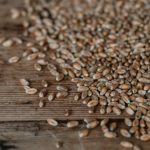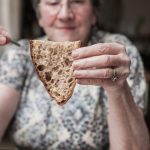Welcome to the Topic Library
This is where you can find lectures, and information listed by topic and where you can also find extra information
The Topic Libraries give you an overview of some personalising bread for health topics you will learn when you are enrolled on the Diploma. The diploma schedule allows us to touch on many areas but is limited to the hours and timings of the course for about 200 hours. This topic library offer hundreds of hours additional hours of my work, teaching, and insights into bread and health.
There are many libraries, ( this does not include the baking techniques or recipes,) and each one serves as an essential resource for those engaged in the application of personalising bread and offers insight into using the BALM protocol. They offer a wealth of information for in-depth learning and engagement, tailored for clinical use to integrate BALM into lifestyle medicine effectively.
I often update topics with the latest research, and part of my job is keeping this extensive repository of resources up today. They are designed to enrich and augment the educational experience for students enrolled in our courses. The libraries enable students to explore specific subjects in greater much greater detail, facilitating a more robust understanding of the content.
The Syllabus
When you enrol, you follow a weekly dynamic syllabus. When you log in, you will have access to this library with a wide array of materials, including overviews, recommended readings, background articles, podcasts, studies, lectures, practical tasks, guest lectures, and other pertinent content, providing a well-rounded educational resource.
Please remember that I am often still working on them, so they are living libraries and are added to all the time, and I am happy to add more in. Let me know if you want to know more about a particular topic.
Kindest regards
Vanessa
Syllabus for Personalising Bread Module
Total Time: 184 hours and 7 minutes
| Lessons | Time | What you will learn |
|---|---|---|
- AN OVERVIEW OF THIS MODULE'S OBJECTIVES AND ALLOCATED TIME
| 5 mins | The Objectives of the Personalisation of Bread Module
You'll gain insights into the negative impacts of mass-produced bread and the positive outcomes of the BALM Protocol through personal biome testing and case studies, equipping medical professionals with the knowledge to prescribe BALM effectively. Additionally, the course fosters a supportive network of healthcare professionals and bakers, focusing on the extended community health benefits of BALM, with opportunities for professional development, community activism, and mentorship in baking and health. |
SEPTEMBER - WELCOME
| 185 mins |
|
GRADUATION INFORMATION - PRESCRIBING BALM PROCEDURES AND GUIDELINES LIBRARY
| mins |
|
THROUGH OUT YOUR COURSE - BALM PROTOCOL LIBRARY
| 2400 mins |
|
THROUGHOUT - DIPLOMA TASK LIBRARY
| mins |
|
- CASE STUDIES
| 120 mins |
|
SEPTEMBER - THE CURRENT SITUATION LIBRARY
| 150 mins |
|
SEPTEMBER - UNDERSTANDING THE GUT MICROBIOME
| 860 mins |
|
- THE MECHANISMS & BENEFITS OF FERMENTATION
| 460 mins |
|
- THE NUTRITIONAL VALUE OF BREAD & GRAIN
| 480 mins |
|
- THE FOUNDATIONAL KNOWLEDGE THAT UNDERPINS THE BALM PROTOCOL BT
| 2360 mins |
|
- BREAD & NEURODEGENERATIVE DISEASES
| 30 mins |
|
- UNDERSTANDING THE ROLE OF BACTERIA IN SOURDOUGH
| 960 mins |
|
- BREAD & MENTAL HEALTH
| 180 mins | How bread plays a central role in mental health. |
NOVEMBER - A CLOSER LOOK AT HERITAGE GRAINS
| 770 mins |
|
DECEMBER - USING BREAD FOR BLOOD SUGAR MANAGEMENT AND SUPPORTING MOOD
| 360 mins |
Sourdough Bread and Blood Sugar BalanceIn this section, we delve into the ways bread—and especially sourdough—can influence blood sugar, inflammation, and overall metabolic health. Through lectures, conversations with experts, and scientific studies, you’ll explore the unique benefits of sourdough for blood sugar stability, thanks to its natural fermentation process, which boosts soluble fibre and resistant starch. These compounds slow glucose absorption, helping balance blood sugar levels over time. We’ll examine the impact of white bread on inflammation, uncovering how industrial baking can drive blood sugar spikes and how diet can either support or undermine metabolic health. Insights from leaders like Tim Spector, Dr. Michael Mosley, and Dr. Clare Bailey offer perspectives on managing diabetes, the benefits of intermittent fasting, and practical ways to reduce endocrine disruptors while baking. Finally, you’ll learn to make vinegar—a valuable tool for enhancing insulin sensitivity and supporting stable blood sugar. This section equips you with practical knowledge to transform your baking, balancing both flavour and nutrition, to support overall health in each loaf you create. |
DECEMBER - SOURDOUGH, BIOAVAILABILITY OF FIBRE & BOWEL CANCER
| 90 mins | How including wholegrain sourdough may help prevent bowel cancer. |
JANUARY - WEIGHT MANAGEMENT & BREAD
| 225 mins | Which grains, techniques and ways of eating and baking bread help weight management. |
MARCH - BREAD & CARDIOVASCULAR HEALTH
| 490 mins | A closer look at how Wholegrain and Sourdough can help prevent heart disease |
APRIL - SOURDOUGH, IBS AND REDUCING FODMAPS
| 275 mins | How the fermentation process can help IBS symptoms. |
MAY - SOURDOUGH, COELIAC DISEASE AND NCGS
| 155 mins |
|
- METHYLATION PATHWAYS AND BALM PROTOCOL
| 5 mins |
The scepticism surrounding methylation as an evidence-based approach in conventional medicine may stem from several factors, including limited research, individual variability, lack of standardized testing, and some non-evidence-based techniques that are complementary therapy and not clinical. Despite these concerns and acknowledgement that this is not an area that all medical professionals agree on there is growing interest in understanding the role of methylation in health and disease. Many of the objections feel and sound similar to the ones I heard for many years when the understanding of the gut microbiome emerged. I think, given that researchers are actively studying the connections between methylation and various conditions, such as cardiovascular disease, neurological disorders, and cancer, it is correct to include this topic as part of the discussion around bread. As the scientific understanding of methylation processes expands, it is possible that more targeted and evidence-based treatments may emerge, and with clinical evidence, then these will, in time, gain acceptance within the conventional medical community. I, therefore, ask that you consider this topic with an open mind, and as a living syllabus, we will keep updating it as the discipline emerges - critically evaluating the findings - I look forward to approaching this topic with interest as our understanding develops. |
JUNE - SOURDOUGH & IBD
| 30 mins | A guide to sourdough & IBD. |
- BREAD AND NEURODIVERSITY
| mins |
|
JUNE - HOW TO EAT BREAD
| 2 mins | A guide to eating symbiotically. |
JUNE - LIVING RESEARCH – A LIFESTYLE PRESCRIPTION
| 455 mins | It takes more than fermentation alone. Is making bread part of the reason for the positive changes in health? |
JULY - SEPTEMBER - YOUR ASSESSMENT & GRADUATION
| mins | Your final tasks. |
 Throughout your course, you'll learn about the personalisation of bread, and this is knowledge that can be used to tailor bread to individuals. You will also learn when and how to use BALM, and understanding the transformative effects of long, slow fermentation on bread, the gut microbiome, and mental health.
Throughout your course, you'll learn about the personalisation of bread, and this is knowledge that can be used to tailor bread to individuals. You will also learn when and how to use BALM, and understanding the transformative effects of long, slow fermentation on bread, the gut microbiome, and mental health. The Welcome Library
The Welcome Library Social Prescribing Protocol Library
Social Prescribing Protocol Library The BALM Protocol Library
The BALM Protocol Library Your Tasks
Your Tasks The Case Studies
The Case Studies Setting the scene of the current system.
Setting the scene of the current system. The Gut Microbiome Topic Library
The Gut Microbiome Topic Library The Mechanisms of Fermentation Library
The Mechanisms of Fermentation Library Understand the nutritional value of grains.
Understand the nutritional value of grains. The Knowledge Library that underpinned the Development of The BALM Protocol
The Knowledge Library that underpinned the Development of The BALM Protocol Bread and Neurodegenerative Diseases
Bread and Neurodegenerative Diseases How the yeast and bacteria transform the dough.
How the yeast and bacteria transform the dough. A Closer Look at Heritage Grains
A Closer Look at Heritage Grains
 Coeliac disease is an autoimmune disorder characterized by an abnormal immune response to gluten, a protein found in wheat, barley, and rye. This response leads to inflammation and damage to the lining of the small intestine, which can result in various gastrointestinal symptoms and nutrient malabsorption. As the prevalence of coeliac disease continues to rise, researchers and healthcare professionals are exploring alternative dietary approaches to managing this condition. - this topic takes a closer look at BALM and coeliac disease - please note that this is also an area we wish to develop with gluten-free recipes when we have time.
Coeliac disease is an autoimmune disorder characterized by an abnormal immune response to gluten, a protein found in wheat, barley, and rye. This response leads to inflammation and damage to the lining of the small intestine, which can result in various gastrointestinal symptoms and nutrient malabsorption. As the prevalence of coeliac disease continues to rise, researchers and healthcare professionals are exploring alternative dietary approaches to managing this condition. - this topic takes a closer look at BALM and coeliac disease - please note that this is also an area we wish to develop with gluten-free recipes when we have time. Methylation is a well-established biological process that plays a crucial role in various cellular functions, such as gene expression, DNA repair, and neurotransmitter synthesis. However, the concept of "methylation imbalances" (i.e., undermethylation or overmethylation) as a primary cause of specific health issues is not universally accepted within conventional medicine.
Methylation is a well-established biological process that plays a crucial role in various cellular functions, such as gene expression, DNA repair, and neurotransmitter synthesis. However, the concept of "methylation imbalances" (i.e., undermethylation or overmethylation) as a primary cause of specific health issues is not universally accepted within conventional medicine. Bread can support neurodiverse individuals, particularly those with Autism Spectrum Disorder (ASD) and Attention Deficit Hyperactivity Disorder (ADHD). It highlights the nutritional and biochemical benefits, such as enhanced methylation, reduced inflammation, and better blood sugar management. Additionally, it discusses the holistic and emotional benefits of baking, including sensory integration, structured activities, and social interaction. By understanding these connections, we can see how bread can be a valuable component in promoting the well-being of neurodiverse individuals.
Bread can support neurodiverse individuals, particularly those with Autism Spectrum Disorder (ASD) and Attention Deficit Hyperactivity Disorder (ADHD). It highlights the nutritional and biochemical benefits, such as enhanced methylation, reduced inflammation, and better blood sugar management. Additionally, it discusses the holistic and emotional benefits of baking, including sensory integration, structured activities, and social interaction. By understanding these connections, we can see how bread can be a valuable component in promoting the well-being of neurodiverse individuals.
